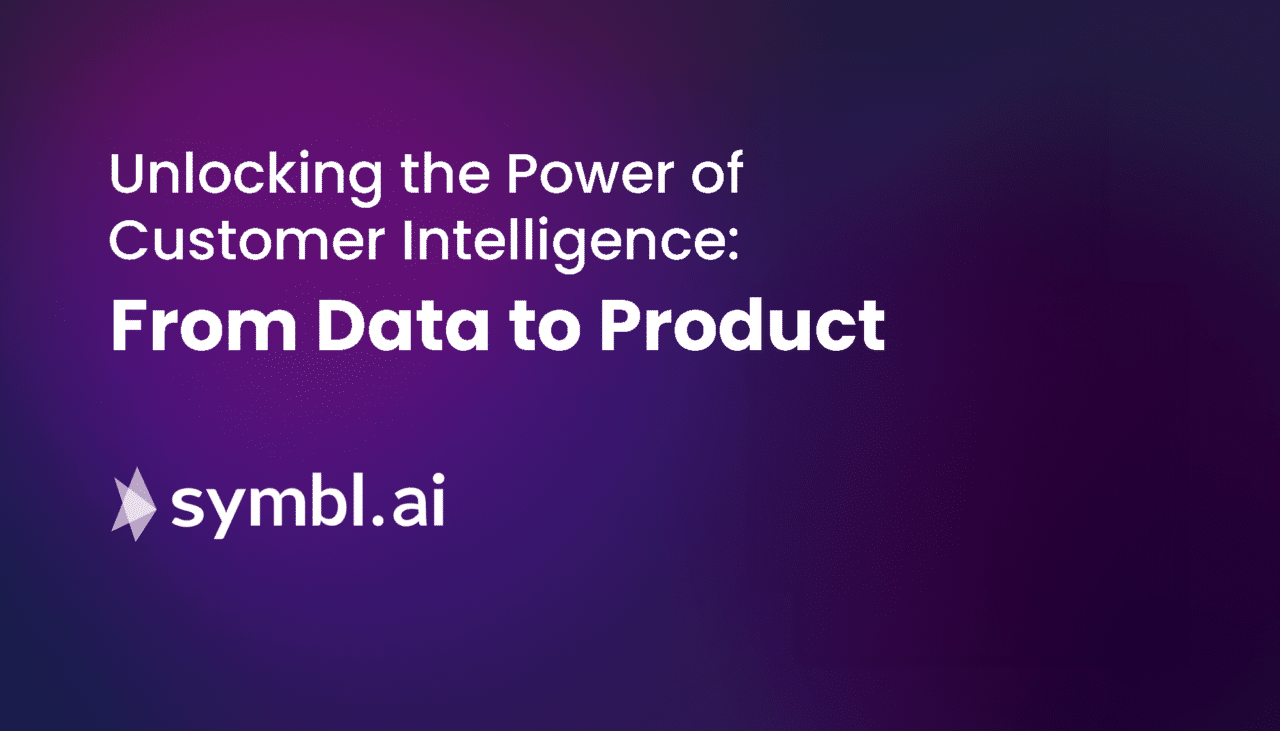Remember that moment when you received a personalized recommendation from an online store, and you thought, ‘Wow, they understand what I like!’ It’s all thanks to the power of customer intelligence.
Customer intelligence is collecting and analyzing detailed customer data to understand how to interact with each customer. Companies often gain valuable insights into customers’ behaviors, preferences, needs, and feedback by harnessing this valuable asset, “Data”. Gone are the days when this intelligence was lying in a database or Excel sheets. In today’s world, companies are treating data as a product.
This blog will explore the importance of treating customer intelligence data as a product, pitfalls, and best practices before you embark on this data-driven journey for your organization. I would also cover how to get started on this data-driven journey.
Examples of data as products
Now let’s look at some of the examples of how customer intelligence data can be packaged as a product:
- Dashboard to understand customer behavior: Dashboard that captures historical customers’ transactions. It could also capture the feedback from customers in terms of click rates or revenue generated. This could be distributed across the organizations and used by business stakeholders.
- AI products fueled by data: Recommendation engines that provide personalized customer recommendations based on their preferences are another example of data as a product.
- Churn Prediction Models: Data products that include churn prediction models help businesses proactively identify customers likely to churn. Using these insights, companies can implement retention strategies to reduce customer churn.
Benefits of Treating customer intelligence data as a product
It must be evident through the introduction that companies need to care about this data to stand out in a competitive landscape. So here are the reasons why you should treat it like a product:
- Data-Driven Decision Making: Packaging, your customer intelligence as a product, can easily make it accessible to everyone in the organization and empower technical and business folks to leverage it to drive decisions. It is also a step towards fostering a data-driven culture in your organization.
- Improved customer experience: Treating data as a product can enable and fast-track AI solutions, hence providing a personalized experience to your customers.
- Enhanced Data Quality: When data is treated as a product, there is a greater emphasis on data quality, accuracy, and governance. This ensures that data is maintained, curated, and updated, leading to more reliable insights and decisions.
- Increased innovation and literacy: Data as a product can improve cross-collaboration across organizational stakeholders, allowing them to innovate and increase their knowledge of customer data.
How to get started
If you are thinking of getting started on this data-driven journey, it might seem overwhelming, but here are a few simple ways to get started:
- Assess Data Assets: Begin by assessing the data assets within the organization. Look for data that can provide insights, drive decision-making, or support innovation in different areas.
- Identify potential use cases: Once you have assessed the data, determine how the data can be leveraged to address specific business challenges or enhance existing products and services.
- Customer-Centric Approach: Adopt a customer-centric approach when developing data products. Understand the needs and preferences of potential data customers and tailor offerings to meet their specific requirements.
- Hire the right talent: To harness the potential of data, it’s essential to have the right talent. This could look like data strategists, analysts, data scientists, and data governance managers.
Pitfalls and Best Practices
Treating data as a product can have ethical implications, so it is essential to be aware. Here are a few things to be careful about and their mitigation:
- Privacy: Data as a product requires companies to handle data with utmost care. Data products may contain PII, and organizations must ensure compliance with data privacy regulations, obtain informed consent, and protect individuals’ privacy rights. Implementing robust data anonymization and encryption techniques is crucial to safeguard user privacy throughout the data lifecycle.
- Security: Data products can be valuable assets that attract potential threats. Organizations must prioritize data security by implementing robust security measures, including access controls, encryption, and regular security audits. Protecting data from unauthorized access, breaches, and cyber attacks is essential to maintain trust and prevent harm to individuals.
- Bias and Fairness: Data products can inherit biases present in the underlying data. Biased data can lead to biased algorithms and discriminatory outcomes, perpetuating societal biases and inequalities. Organizations must address bias and ensure fairness in data products by carefully curating diverse and representative datasets.
- Informed Consent and Transparency: Organizations should ensure individuals are well-informed about how their data is collected, used, and shared as part of data products. Obtaining informed consent and providing transparent information about data practices is crucial. This includes communicating the purpose of data collection, individuals’ rights over their data, and the measures taken to protect their privacy and security. Customers tend to engage more with brands they trust
- Data Quality Checks: Organizations should have appropriate frameworks to monitor data quality continuously. This can help flag data drift and bias in data so that organizations can mitigate it as quickly as possible. Lower Quality data can impact your data and AI product significantly.
Customer intelligence is not just a buzzword but the bedrock of successful businesses in the digital age. By leveraging customer intelligence as a product, organizations can unlock endless possibilities for growth, innovation, and customer satisfaction. Let us embark on this transformative journey together, where data becomes the key to unlocking a world of opportunities and ensuring a brighter future for businesses and their valued customers.
